Bernie Ecclestone: from building F1 to its future — The Motor Sport Interview
If Formula 1 is theatre, then Bernie Ecclestone has played a leading role in its epic production. We caught up with the 90-year old and found him in reflective mood about his early days at Brabham, but as punchy as ever about the future
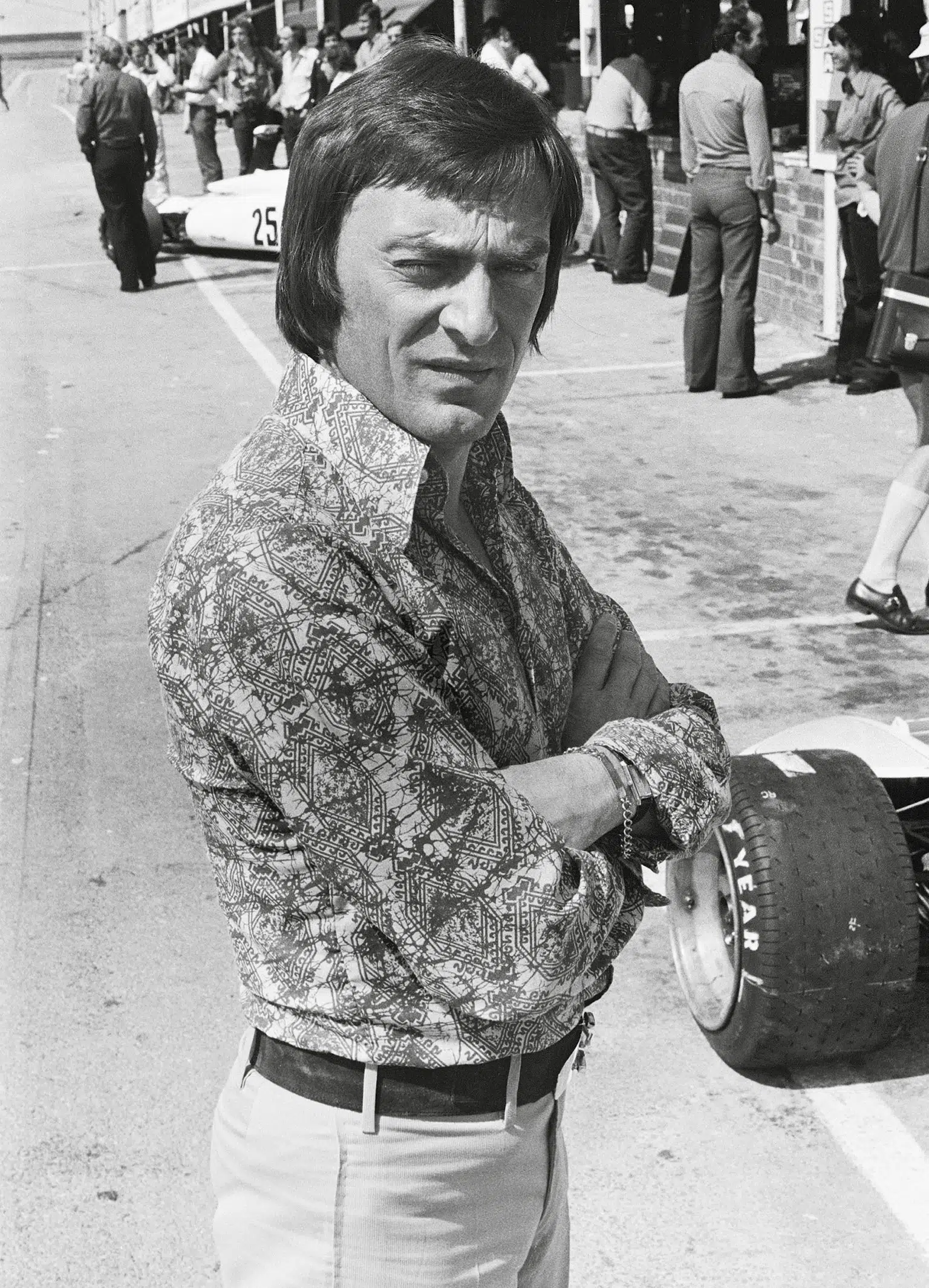
Bernie Ecclestone is one of the world’s great deal makers. He loves them and has done some very good ones, both for himself and for those around him. He transformed what used to be a travelling circus into the global phenomenon that is Formula 1 today. Above all else, however, Bernie is a racer, a man who lives to win.
During the lockdowns he, his wife Fabiana and their son, six-month old Alexander have been at their home in Gstaad, Switzerland, where Bernie also owns the Hotel Olden. He keeps a close eye on the sport that was his fiefdom for four decades. On the phone from his home, he takes us back to the early days of his career, and looks ahead to the challenges facing F1 today.
Motor Sport: So Bernie, let’s start in the 1950s when you raced bikes and cars. When did you get bitten by the racing bug and did you have any ambition to be a top driver?
Bernie Ecclestone: “I’ve always been very competitive. I started racing push bikes, believe it or not, then it was motorbikes and eventually cars, the old 500cc Cooper-JAPs. If you’re a competitive person you need something to satisfy that. Same in business; I was competing for the best deal, for me and for other people. I won some races, had some accidents – in one of them at Brands Hatch someone got hurt in the crowd. In those days, safety was bits of string and some poles. I was a used-car dealer, running a business, not a racing driver, so I stopped. Yeah, I won a few, but I finished up in hospital racing bikes, so did I want to risk my life to become a racing driver? No I didn’t.”
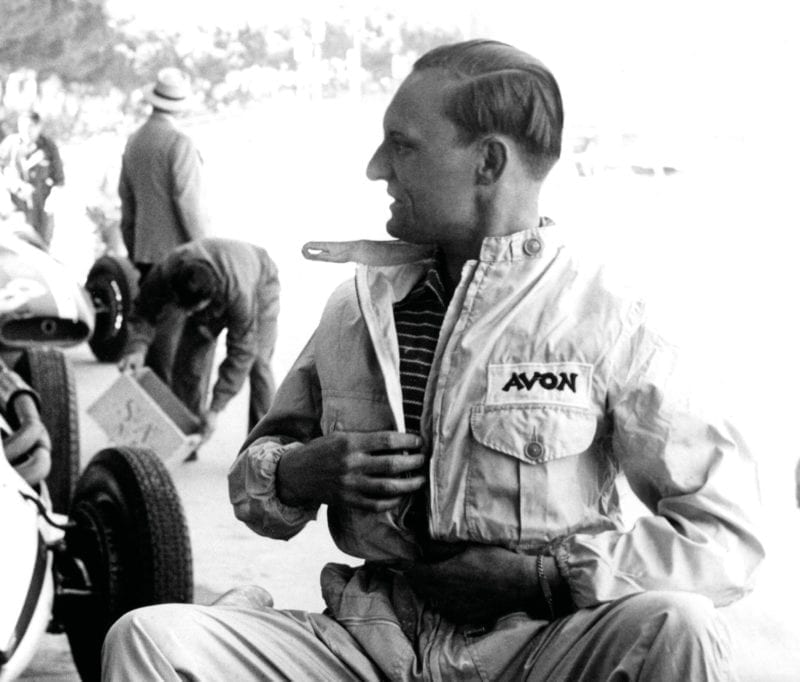
In 1958 Ecclestone missed out on a starting spot at the Monaco GP.
You started doing some deals, first for Stuart Lewis-Evans and later for Jochen Rindt. Was that all part of the big plan?
BE: “I don’t make plans, never have. I take opportunities, and these were friendships. Stuart and Jochen were mates. I did the finance, they did the driving and it worked. After Stuart was killed in Casablanca at the end of 1958 I took time away and ran the used-car business. I was good at it, sold a lot of cars and bikes, but in the 1960s I went back, wanted to help Jochen, the most talented driver I’d ever seen. I looked after him and we shared the money. It was fun; Jochen was fun. He could have gone to Brabham in 1970 and I told him he had a better chance of winning the title with Lotus although he had more chance of getting hurt. Like all drivers he said, “It isn’t going to happen to me; I want to win that world championship,” so he went to Lotus and what happened at Monza wasn’t good. I was there, it was not good. I walked away for a while.”
Soon after your 40th birthday you bought the Brabham team. Did you see this as a chance to take over the sport itself?
BE: “It was an opportunity, at a good price, and the team needed some smartening up, it wasn’t tidily run. Talking to [Ron] Tauranac about the staff, he told me Gordon Murray should be one of the first to go, so the first thing I did was hire Gordon. Tauranac thought he’d stay in charge but that didn’t suit me. The Brabham days were lovely; we had really good people, Charlie Whiting and Herbie Blash, the old-timers. They both came with me to run Formula 1, and Colin Seeley managed it all. Colin and I built the first and only monocoque motorbike in ’76. I bought it back recently. We had a great crew, super people. If I was to have a team again I’d hire all those Brabham guys with Nelson Piquet and Niki Lauda as drivers.
“We were the first to do so many things. Gordon would come to me with his ideas, and I’d say, ‘Let’s try it, see what happens.’ I enjoyed the styling on the cars. We both wanted them to look right as well as perform. Gordon’s built this new car, the T50, but I won’t buy one. I mean, we’ve got this Ferrari F12, number 501 built specially for Fabiana. They only did 500 of them but Sergio Marchionne said they’d do one more for her because she’d had to put up with me all these years. She likes it but I don’t really want a car where I have to sit on the floor. All these magic cars, they’re for parking, for being seen in. You can’t tear around any more.”
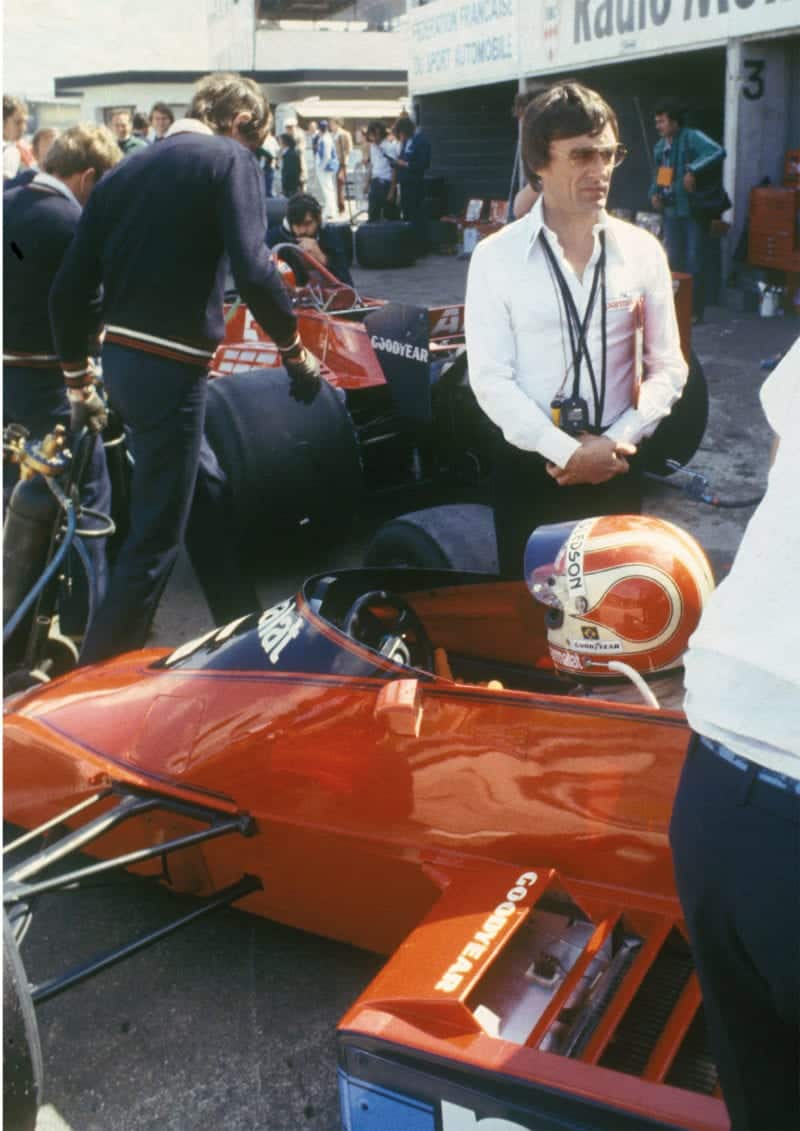
Ecclestone was Brabham team owner for most of the 1970s and ’80s. Here he waits with Nelson Piquet at the 1979 French Grand Prix
It wasn’t long before you were doing a bit of business for all the teams, starting FOCA and sparring with FISA. Did you have to persuade the teams to join?
BE: “No, no, the team owners came to me and asked me to help get things properly organised on their behalf. It needed doing – the finances were in a mess; sometimes they never got paid, and they needed someone to represent them, get a better deal, and I took a percentage. We needed a new agreement, we had to stand together. I wasn’t really motivated by the money. Okay, being able to acquire things you want is nice, but I like to do good deals and I’m upset with myself if I don’t. It was a competitive thing, getting the teams the deal they should be getting, so I got more involved running FOCA, dealing with FISA and negotiating the television rights. The TV was important. It wasn’t properly organised, we needed better coverage, and income, round the world.”
Then along comes Max Mosley, former March team owner and now a barrister. You and Max seemed an unlikely partnership, so why did you need him on board?
BE: “What? You mean a used-car dealer and a barrister? Well, after I bought Brabham I had a meeting with Colin [Chapman], Frank [Williams], Teddy [Mayer] and all those people from the teams, and Max was there too. I thought, ‘You know, I’m going to need a lawyer to get things done,’ and we worked well together. He knew the business; he’d had a team, he’s clever and look, the team owners weren’t getting what they deserved out of it all. I mean, they were the sport, they brought the cars, and it needed sorting out.”
You say it needed ‘sorting out’ but it started looking like a war with FISA, you and Jean-Marie Balestre getting involved in some fairly aggressive disputes.
BE: “Well, it wasn’t always like it was reported in the media at the time. They don’t know everything. I thought Balestre was a super guy; he promoted Formula 1 well, the way it should have been done. He said some silly things, did some silly things, upset a lot of people, but we had a good relationship – not from the media point of view, obviously. Everybody was speculating what was going to happen with the Concorde Agreement; we signed it in the basement of a hotel, it was snowing outside, and Balestre said we mustn’t tell anyone for six months because he was enjoying all the speculation in the press. He was always sure he was going to be re-elected. He said he’d get back in easily, but I told Max I wasn’t so sure about that. I called Jean-Marie at six o’clock on the morning of the election. I told him, ‘You’re not going to win this. Why don’t you say you’re going to stand down and you want them to vote for your good friend Max Mosley?’ He went berserk with me, said I was mad, insistent he would win, said he had a list of names who’d support him. I told him he should tear up the list. We couldn’t just let him go so we had something called the Senate, with Balestre as the president, but the people on the Senate supported Max. It worked well.”
You and Max Mosley held a lot of cards when he was elected president of FISA in ’91, and the FIA in ’93, so it appeared that you had an ally in the enemy’s tent.
BE: “It wasn’t like that actually, not like what people said. When I bought that bloody 100-year agreement, Fiat were going to buy it. They offered more than me. I said to Max he’d better tell them they should hurry up and pay the money, but they didn’t. So Max talked to all the FIA people, which was embarrassing for him, but they all agreed they should take my money even though it was less than Fiat had offered. That’s what happened.”
That’s how it was? No advantage with Max as FIA president? The ’92 Concorde Agreement, however, gave you almost complete control commercially. It was the start of your reign as the F1 ‘ringmaster’.
BE: “I didn’t want him doing me favours because we were mates, didn’t want people to think that’s how it was. It wasn’t how the media said it was, the whole thing with Balestre. We did some good deals for the teams with the Concorde Agreements. You can’t run everything with a committee – takes too long. All sports have moved away from what they were and we started all that. I’ve talked about all this before. I have no regrets, none at all. Yesterday is gone, job done.”
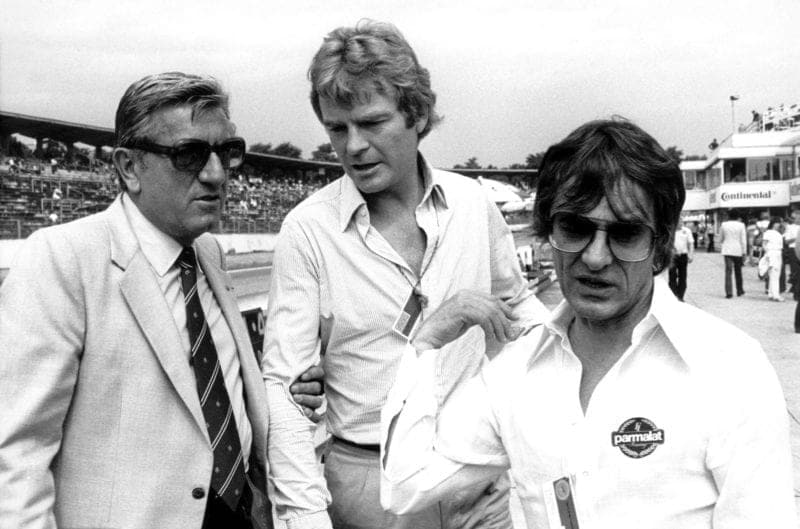
Ecclestone frequently clashed with FISA president Jean-Marie Balestre, left. Max Mosley, centre, was a FOCA spokesperson when this photograph was taken in 1981
Yes, it was ‘job done’, as you say, but then Liberty came along and effectively bought the business you’d built. So how hard was it to let all that go?
BE: “It was easy. I got fired. No trouble at all. I still had a three-year contract with them, was still drawing the dividends, but when they told me this guy Chase Carey wanted to be in charge, I said, ‘Well, he’d better be in charge then.’ To be fair, they never actually told me to go, they couldn’t do that, but they’d bought the company and he wanted my job. I think they thought, you know, we’re Americans, we can do a much better job than this
80-year-old bloke who’s not too excited about all these new digital things.
“Early on they realised it wasn’t going to be as easy as it first appeared. I mean, they talked about more races in America, lots more television, but that hasn’t happened. Liberty bought the company, looked at the profits; they’re businessmen, that’s super, but I don’t think they’re racers, not racing people.”
Let’s talk a bit about this year. I know you watch the races and keep in touch with everyone. We’ve enjoyed going back to some of the old-school tracks like Imola, Mugello…
BE: “Hang on, why did you enjoy that? You like them because you remember them as how they were. I was disappointed because I tried to raise the bar on all the circuits, and build new ones, to improve everything, for the teams, the sponsors, the spectators, the TV, everything, year by year. The old tracks look a bit downmarket now, like going back in time, like a good club race. We thought Imola was fantastic back then but now… I’m not so sure.”
Some of us just don’t like the new Tilke tracks. They’re all a bit the same, and don’t have the atmosphere of the traditional tracks.
BE: “It might be good for you and I to remember the old ones but all the new people coming in – and okay, there’s not too many of them – they want something better, smarter, better facilities. Anyway, I can tell you the Brazil race will stay at Interlagos next year. I’ve been talking to them. São Paulo will pay for it. I told them, no messing about, so it’s happening.”
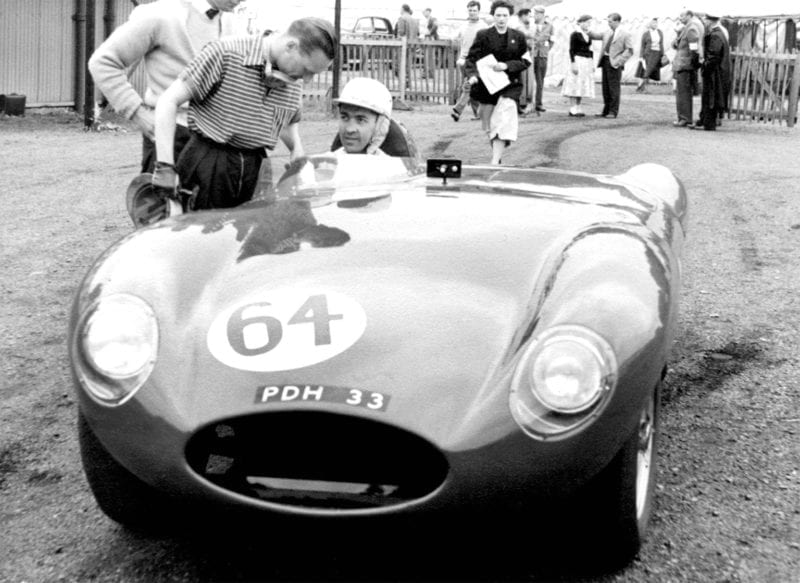
He was manager of Stuart Lewis-Evans in the late 1950s
Well, that’s good news, but does F1 still have a future in the world we live in today, a world that is changing so fast?
BE: “There’s going to be a lot of changes. Everyone will have electric cars, the politicians will see to that, you won’t be able to take a petrol car into a city. People will say, ‘Hang about, all these F1 cars charging round – why aren’t they electric?’ and the manufacturers are going to stop making petrol or diesel cars within a few years. Honda is going; Red Bull will take the engine but that will only work if the others agree to freeze, otherwise they’ll just go on spending God knows what to stay ahead. Let’s get rid of these bloody silly engines they have now. The people in the grandstands aren’t interested in how super-efficient they are, how much fuel they use, how powerful they are. Max [Mosley] said the noise doesn’t matter but I think it does, always have done. So many people told me how much they enjoyed the noise of that Ferrari when young Mick Schumacher did those laps at Mugello. It was fantastic, wasn’t it? He’s at Haas next year with Mazepin. His father is buying the team.
“I’ll be in trouble for this, but let’s dig out all the old normally aspirated engines. Everybody’s got them, the costs go right down, the noise will be back, and we can use them for five years while we sort out an engine for the future. Formula 1 doesn’t have to be relevant to the car industry. People forget, Formula 1 is in the entertainment business and when you stop entertaining you haven’t got a business. All these silly rules with the white lines, the track limits, don’t go over this, don’t do that, bloody mad. There’s a team of people coming up with all these rules and ideas. That’s what they’re paid to do. I used to say to Charlie [Whiting], ‘Start writing in all the regulations – Don’t race.’ That’s effectively where we’re going. We had about 35 people when we ran the show and we got things done fast. Now it’s hundreds. But we got so many new things done that are now taken for granted. The world is changing so fast; let’s see what happens.”
Well, one thing that’s happening is Stefano Domenicali taking over as chief exec. Is he the right man for the job at this juncture?
BE: “Stefano is a lovely guy but he hasn’t got any experience in the job he’s been given, so that’s a danger. If he has some good ideas, will his position allow him to get them done? I told him, if he doesn’t have to report to someone else, then super, but if he has to keep reporting to someone all the time, it ain’t going to work. I need to be careful here… but I’ve never been in favour of democracy, all these politicians. I don’t know if Stefano will be tough enough to get stuck into things. You can’t keep waiting. You have to get on with it.”
Let’s talk about Lewis Hamilton. He’s brought human rights and the anti-racism campaign to the races this year. Where are you with politics and sport coming together?
BE: “He’s extremely talented. We know who’s going to win the races. Mercedes has done everything, and more, to help him win and they look after him so he stays there, and he’s lucky to be there. When you talk to someone about Formula 1 they say, ‘Oh, you mean Hamilton?’ He’s getting more recognition than the sport itself, which is bad. If I was in charge I wouldn’t have allowed him to wear all those shirts on the podium and kneel on the track. That’s just how I see all this. If people want to watch all that, fine, but I don’t think sport should be used for politics.”
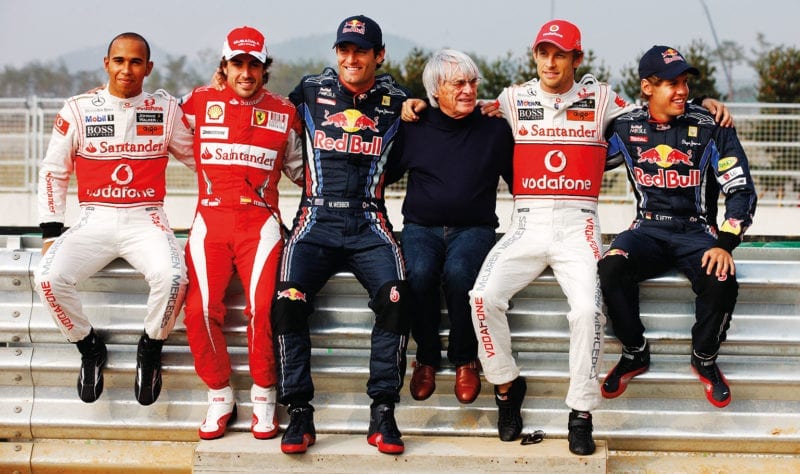
With F1’s young guns in South Korea, 2010. From left: Hamilton, Alonso, Webber, Button and Vettel
While we’re on politics, what has happened to Seb Vettel at Ferrari? He’s a good friend of yours, so you should know.
BE: “He doesn’t know. I’ve talked to him about it. I asked him, ‘Was it you or the car?’ He said, ‘I don’t know.’ Look, the car wasn’t easy to drive, but if you were the person at Ferrari who chucked him out, you might not want him to perform. I mean, imagine if he’d been blowing away Leclerc, people would ask the team why they chucked him out. His pitstops seemed to last a long time, things like that, so I don’t think he was getting much help. He can’t suddenly not be the driver he was, suddenly be as bad as he looked. It’s not possible. I helped him get the drive at Racing Point. I told Stroll he should take him. Makes the team look good to have a four-time champion, and Seb can help his son, make him a better driver. I told Seb, ‘Go there, make a new start like you did with Red Bull.’ I mean, in those days Red Bull wasn’t exactly top of the hit parade but he grew up with them, helped them get those championships. I don’t know if he can do that again. I hope he can, but he’s got used to losing, and that’s definitely not good for his head.
“I remember walking to the back of the grid at Brands Hatch with Graham Hill, when he had his own team, and I asked him how he could feel good after winning all those things and now he’s on the back of the bloody grid. He didn’t have to race. The money wasn’t like it is now. Seb was still being paid a lot of money but it wouldn’t have looked good if he’d walked away from his contract, would it?”
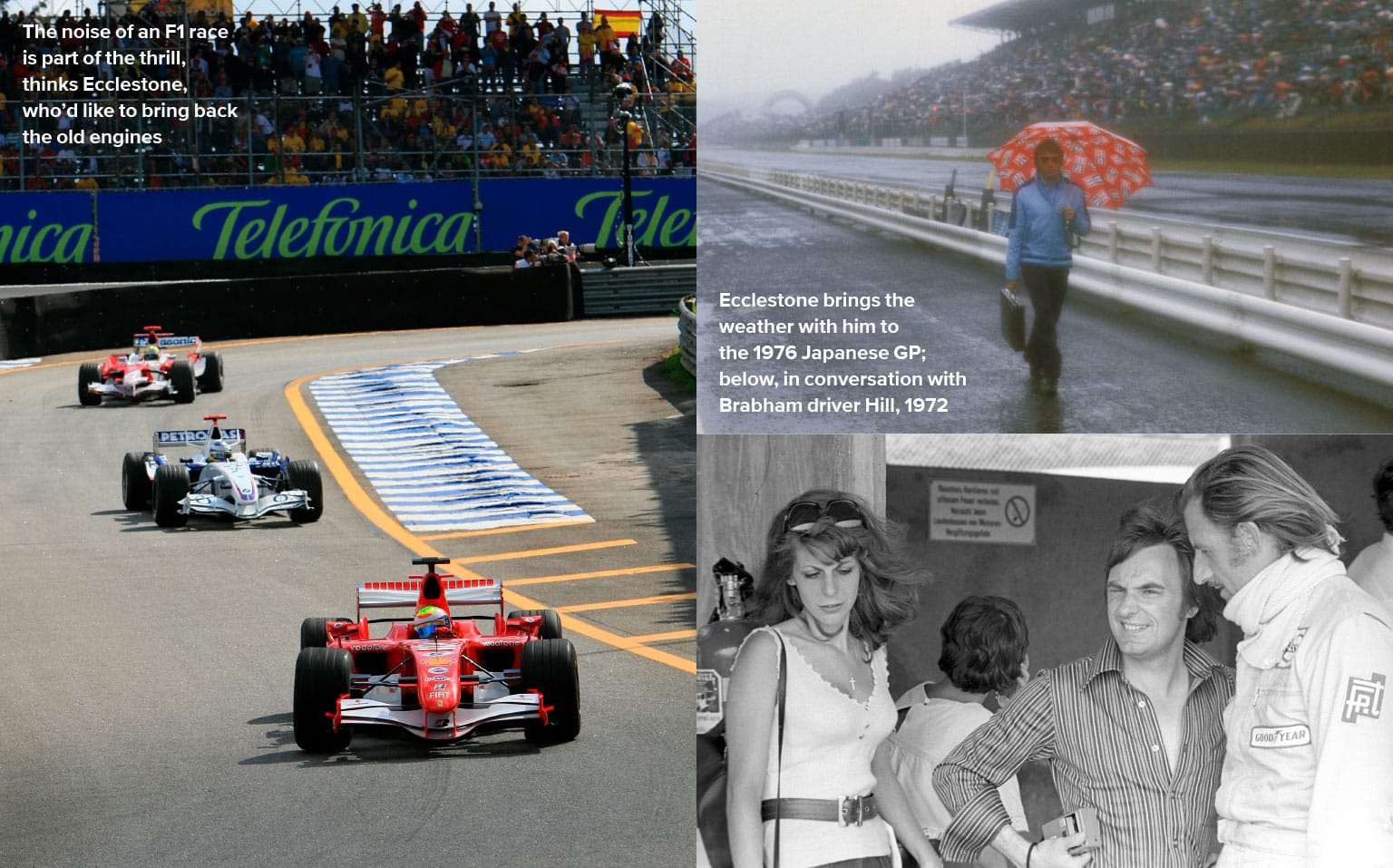
Okay, we know you ‘don’t do yesterday’ but what do you think was the most important thing you achieved for Formula 1 that the fans would have appreciated?
BE: “What I’m proud of, more than anything, is getting the television sorted out, getting the TV rights. Everybody wants to be on TV. Look at it now. Sky does a great job in general. It used to be controlled by the EBU [European Broadcasting Union]. They decided who had what rights and where. It couldn’t work like that. I wanted a broadcaster to cover every round of the World Championship. People said that was never going to work, told me I’d have to deal with the EBU, but I knew I had to deal directly with the broadcasters. We were first to do that. The BBC said they’d never sign up for it, that they wanted to broadcast what they wanted when they wanted. I said, ‘Okay, no problem,’ – but then the first people to sign up were… the Beeb. That brought Formula 1 to the public quicker than anything. Now it’s all on the iPhone or whatever; people have to pay, and you lose a lot of the audience. The ratings go down.
“The other good thing we did, in 1985, was the on-board cameras. People said it wouldn’t work, too much vibration from the car, but it was a big success, and people could choose from different screens. The fans don’t want to pay; I don’t blame them. They want to just turn the TV on and watch the races. I didn’t want other people coming in to film everything. We had invested in our own digital TV service, which other sports have copied. Letting all these other people in, like Netflix these days, that would have been opposition to what we were doing.”
We know you keep in touch with a lot of people and you’re not as busy as you were. Do you ever go and see Michael Schumacher?
BE: “No. People suggested I should, but I want to remember him as he was. That’s why I don’t go to funerals. As far as I’m concerned, with my old mates like Stuart, Jochen, or Niki – I was close to Niki, he held that team together – if they walked in the room today I wouldn’t be surprised. I know it’s completely mad to say that, obviously, but they haven’t gone as far as I’m concerned. I haven’t seen them for a while, but they haven’t gone. I never went to my mum or dad’s funeral either. I know they’ve all gone but I don’t want to think about them like that.”
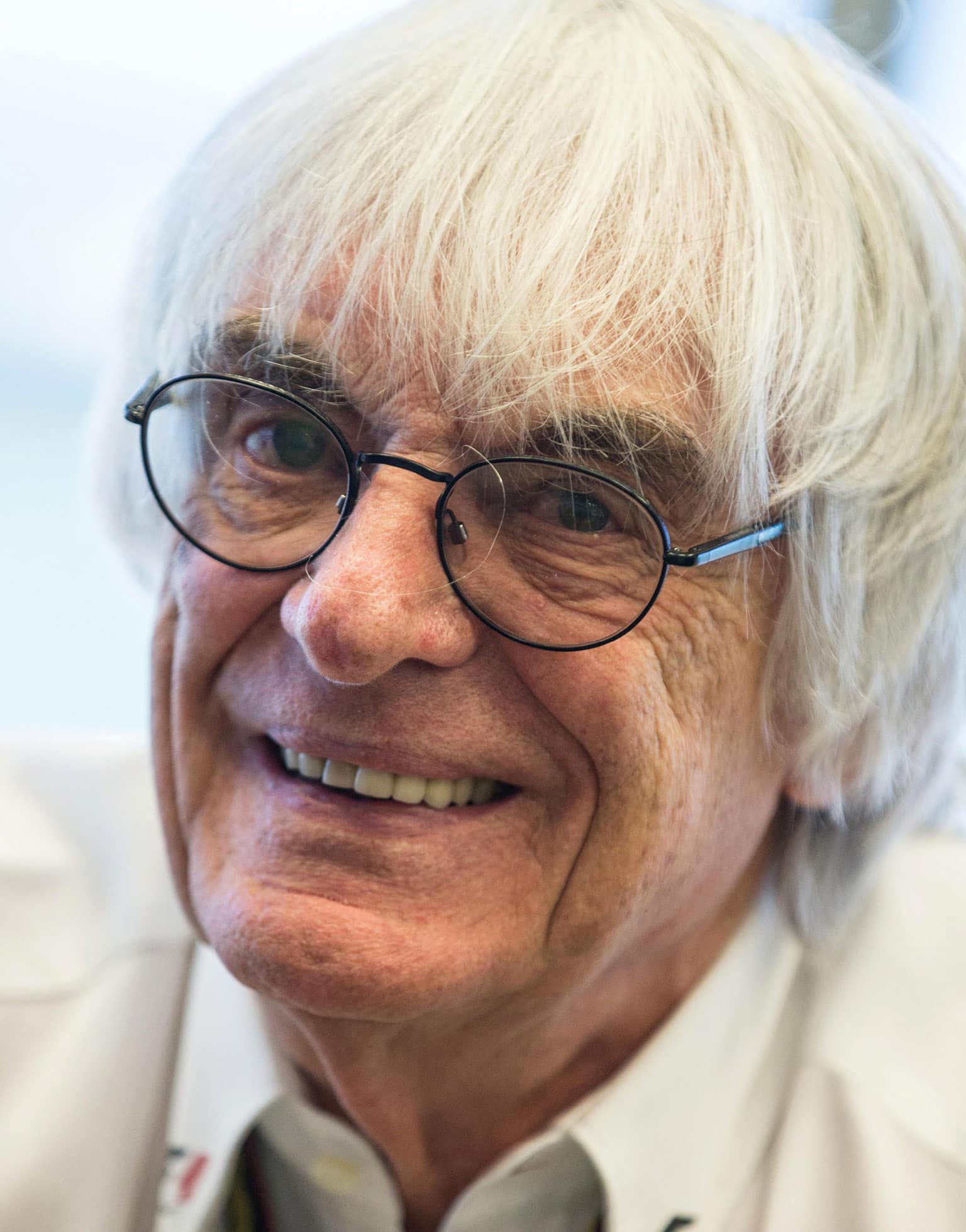
What about birthdays? Did you have a big bash for your 90th last October?
BE: “I don’t do birthdays. They wanted to have this big party, you know, but I said they’d have to drag me there. I didn’t want some big thing. So we had lunch at Tamara’s [his daughter]. She has a house here, and it was all good, super, nice lunch, that was okay.”
You’ll surely have a big party for your 100th won’t you?
BE: “Ha, well, I’ve got to get there first.”
It’s probably a good time to let you go now but tell us, how is life generally now that you are in your nineties?
BE: “I’m very happy here, not mad keen to go anywhere else. I’ve got a couple of planes in England but where am I going to go? We might pop back to Brazil early next year [Bernie and Fabiana have a coffee farm near São Paulo]. I don’t have to do things any more, make all those decisions. There’s a lot more time these days. I’m looking at the mountains right now; it’s very peaceful, they’re beautiful, there’s snow up there already, so yes it’s good here. I don’t have a yesterday, that’s gone, it’s all about tomorrow, always has been for me. People ask me how I’d like to be remembered. I don’t think about it. I don’t care.”
